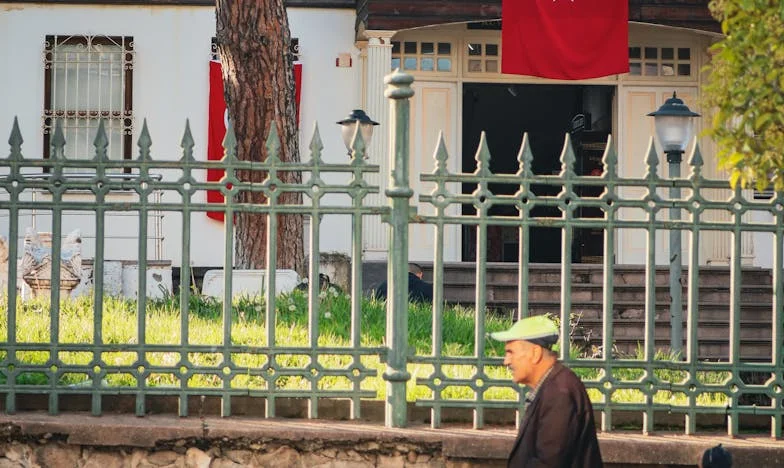When Home Becomes a Battleground: My Life After Moving in With My Daughter
“Why are you doing this to me, Mom?” Emily’s voice trembled, sharp and desperate, as she slammed the dishwasher closed. I stood frozen in the cramped kitchen, clutching my coffee mug like it was the last anchor to my old life. Sunlight streamed through the window, pooling on the linoleum, but every corner of the house felt shadowed by our tension.
I never thought it would come to this. Not after all the years I spent raising her alone in Sandusky, Ohio, after her father died. Not after every scraped knee I kissed, every PTA meeting I rushed to after my shift at the pharmacy. I always believed love would be enough.
Emily’s husband, Mark, had left two years ago, taking half the furniture and all the laughter. She called me late one night, her voice brittle. “Mom, I need you here. I can’t manage the girls and the mortgage alone.”
So I left my tidy little bungalow by Lake Erie—the one John and I bought in ‘87, the one I filled with his memory after the cancer took him. I packed my life into three suitcases and moved into Emily’s suburban split-level.
At first, it felt almost like a second chance. The twins, Maddie and Sophie, would tumble into my bed for stories at night. I’d bake my mother’s apple pie, and Emily would smile, the worry lines on her forehead smoothing just a little. I told myself this—being needed—was a blessing.
But small things began to crack the surface. Emily, always so driven, so precise, bristled at my habits—the way I folded towels, how I left my shoes near the back door, the dinners I made that reminded her too much of when she was a kid and John was still alive. She’d sigh, “Mom, please. That’s not how we do things now.”
One afternoon, I overheard her on the phone in the living room, her voice low. “She means well, but it’s like I have a third child to care for. I just… I just need space.”
I shrank in on myself, remembering how I used to call my own mother, whispering complaints about her stubbornness, her refusal to let go. I wondered if this was some circle I’d never escape.
Money became a quiet, persistent ache. My Social Security check barely covered my medications. Emily’s job at the hospital paid less than it should, and sometimes I’d see late bills stacked on the counter, unopened. When I offered to chip in, she’d wave me off—”You’ve done enough, Mom.” But resentment simmered between us all the same.
Then, the real storm hit. It was a Tuesday in October, and I’d planned to pick up the girls from school. I forgot—my mind just… slipped. Emily came home in a panic, eyes wild, clutching Maddie and Sophie to her as if I’d betrayed her in some irreparable way.
“You can’t even remember something this important!” she yelled, tears streaking her cheeks. “I can’t count on you for anything.”
Her words sliced through me. I wanted to defend myself, to explain that the doctor said it was only mild forgetfulness, that I was still her mother, still myself. But the look in her eyes was the same one I’d seen in the mirror after John died: fear, exhaustion, and a bone-deep sadness.
We stopped speaking, except for clipped exchanges about groceries or the girls’ schedules. The house grew colder, even as the furnace rattled on through the Midwest winter.
One night, Maddie crept into my room, her small hand finding mine in the dark. “Grandma, are you sad?”
I choked back tears. “Sometimes, honey. But I’m always happy to see you.”
She squeezed my hand. “Don’t go away.”
I stayed, for their sake. But Emily grew more distant. She started locking her bedroom door. The twins’ school drawings—once proudly displayed on the fridge—were replaced with overdue notices and lists of chores. I felt myself shrinking, becoming a ghost in what was supposed to be my new home.
Everything boiled over one snowy evening. Emily came home late from work, shoulders hunched, eyes rimmed red. She found me in the kitchen, cleaning up after dinner.
“We need to talk,” she said, voice tight. “This isn’t working. I thought having you here would help, but… it’s too much. For both of us.”
I stared at her, heart pounding. “Do you want me to leave?”
She hesitated, then nodded. “I think it’s best. For the girls. For me.”
I bit my lip, forcing myself not to cry. “I never wanted to be a burden, Emily. Never.”
She broke then, sobbing into my arms like she was a little girl again. “I’m sorry, Mom. I just—everything’s so hard. I don’t know how to fix it.”
I held her, feeling the ache of all the years between us—the love, the anger, the impossible expectations. I remembered every sacrifice, every sleepless night, every proud smile at her graduation. And yet, here we were, two women who loved each other fiercely, hurting each other more than we ever intended.
A week later, I moved into a small senior apartment complex on the edge of town. The rooms are quiet, the neighbors kind. Emily brings the girls by on weekends. We sit together, awkward at first, but slowly finding our way back.
Some nights, I lie awake, staring at the ceiling, wondering: Did I fail her? Or did we both just want too much from each other? How do you hold on to love when the past and present pull you in different directions? And if home isn’t a place, but the people you love… what do you do when those people need space to breathe?
